Princeton Theological Seminary
Getting out of our LA-Z-Boy theologizing and the safety of our blogs, and into the dangerous terrain of taking action, encountering otherness, and altering our perceptions of reality—dangerous precisely for its capacity to transform us, society, and the church.
By Daniel Yang View and print as PDF.
View and print as PDF.
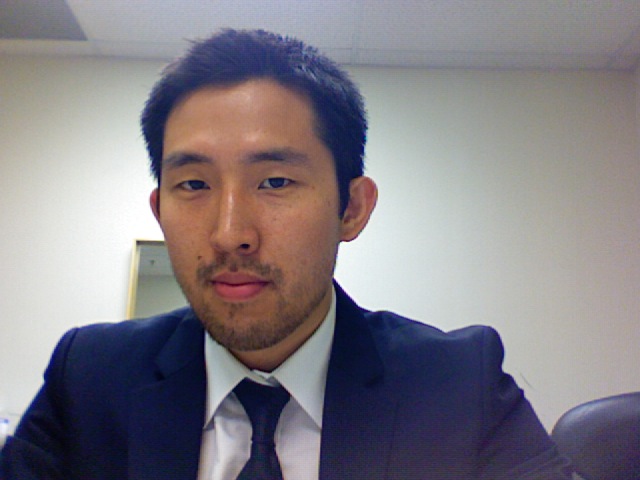 It is disheartening, as a seminary student, to see that social gospel initiatives have become fashionable fads in the Christian Church rather than an integral component of its spiritual DNA (building blocks). Among the bumper stickers, t-shirt clad preachers, and socially indignant blogs, I have to ask if we really have the heart of service for the poor and the marginalized or whether we do it because it’s hip.
It is disheartening, as a seminary student, to see that social gospel initiatives have become fashionable fads in the Christian Church rather than an integral component of its spiritual DNA (building blocks). Among the bumper stickers, t-shirt clad preachers, and socially indignant blogs, I have to ask if we really have the heart of service for the poor and the marginalized or whether we do it because it’s hip.
Kierkegaard, an existential Christian philosopher, claims that Christianity has become soft; faith has lost substantive content. He reminds us that Christianity is intended to be difficult—not easy! Kierkegaard urges us to get out of our comfortable LA-Z-Boys (be they pews, donation checks, or even blogs like this one) and live in such a way that challenges the innermost depths of our faith. In short, Kierkegaard desires a dangerous faith: dangerous, that is, in the risks and changes it presents to us, to society, and to the church.
So how is dangerous faith lived out?
Let’s first take a look at the mission of Martin Luther King Jr.
Knowing full well the immense strength of the principalities of darkness, Martin Luther King Jr., a southern black Baptist minister, sought to abolish the unjust/evil apparatuses that systematically oppressed people of color in the United States, even if it meant risking his life. And Dr. King was not alone. Every day, during the Civil Rights Movement, people risked ostracization, job-loss, harm to their families and to themselves. People locked arms across barriers of race, trust, and inherited notions of the other. Due to the work of the Holy Spirit in the life of Dr. King and those thousands who labored alongside him, the world has been positively transformed for the better, but the damages of history are still echoing in the present.
Back at the University of Chicago, in a special magnet program comprised primarily of inner-city black youth, a student of mine nonchalantly told me that she had witnessed a neighborhood shooting outside her house. She spoke with a studied calmness, as if relating the results of yesterday’s basketball game. That calmness was perhaps more disturbing than the incident itself: that this 8th grade child had come to accept murder as “normal.” Also, many of the students said they were afraid to take textbooks home because they might get beaten up or killed for “acting white.” Hearing this, my heart broke. With a despondent sprit, I uttered:
God, my students live in a world completely different than my own, yet just three streets away from my university campus. A world filled with gang violence, drugs, and unspeakable crimes. A world whose system and not the individual, more often than not, determines the course of one’s life. Schools are broken, the cops are corrupt, and no one seems to care. God, many of the male students’ have expressed to me that their fathers are in jail and many of my male students don’t believe they’ll live past their 30th birthday.
I felt helpless and inadequate. What understanding could I offer these students? What help could I, a suburban Midwesterner, provide? I remember praying to God, “Jesus, use me… please grant me a vision to help slow down the pace of this monster of racism and poverty.” God then threw me a curveball: God told me to major in African-American studies.
So here I am, asking God to show me how to help these students, how to become a “savior” for them, and God tells me to shut up and listen. God tells me to study, to learn. I am not, it turns out, to be the teacher in this scenario. I don’t get to save anyone. After all, if anyone was demonstrating power and courage in this situation, it was these students. God was not just helping me with my course selection; God was changing how I understood my very identity and its relationship with others.
Dangerous Mutuality
After three years of study and assessing a need for the Hyde Park community, I founded an organization on campus called SEND (Students Embracing Newfound Diversity) whose central mission was to cultivate mutual cultural enrichment among inner-city youth and college students. This was spurred by my director at the Office of Special Programs who informed me that the students are exposed to a dearth of different cultures and in need of cultural immersion.
SEND, essentially invites students from the inner-city community to attend the rich culture shows on campus, while sending university students to the high school students’ performances. We were learning from each other, that was the whole point.
More recently, my friends and I started a textbook scholarship in collaboration with the Office of Special Programs at the University of Chicago where we donate money to entering freshmen college students in need of financial assistance.
This has been my dangerous faith, given to me by God and by my students, as they helped me dislocate myself from the familiarities of my own world.
Dislocation is a core part of the Christian identity, for Paul writes in Philippians 3:20, “But our citizenship is in heaven,” which implies that we are already geographically out of place. Many times in the Bible, God commands individuals and communities to move to unchartered territories. As previously mentioned, at first, I felt extremely dislocated/uncomfortable working with primarily black inner-city youth because of my cultural baggage, socio-economic differences, and various other factors. Also, in many ways, being the sole Asian American in my class to major in African American studies was extremely lonely and scary. I had to constantly negotiate whether this was the right thing to do. I had lots of questions: “Could I, at all, empathize with the community I am learning about?” “Do I even have the right to study this?” However, in the midst of all the feelings of confusion and discomfort, God was there.
And God has been there ever since, in the cracks and fissures of normalcy, the moments of dislocation that have challenged and strengthened my faith, right up through seminary.
The Dislocations of Field Education
During my tenure here at Princeton Theological Seminary (PTS), I have met wonderful sisters and brothers who earnestly do justice, love kindness, and walk humbly with their God (Micah 6:8). Granted, there are always those who are merely romantically involved with imaginatively helping those on the margins of society and are, in fact, light-years abstracted/removed from the sobering realities of heartfelt service. But, by and large, I believe that PTS is filled with students and faculty who are committed to substantive reform for the common good of humanity and for the up-building of God’s Kingdom on earth.
Our Field Education staff, in particular Rev. Deborah Davis, does a wonderful job encouraging students to design or explore new ministry opportunities as a means to re-think the norms of ministry and also to push ourselves out of familiar “ministry-realities,” all for the hopes of profoundly (positively) shaping our spiritual formation. Rev. Davis is great at encouraging students to work with the dislocations they are experiencing, effectively explaining that dislocation could serve as a sign for growth in maturity.
Most recently, Rev. Davis, in collaboration with a few Korean American students, organized a theological colloquium to discuss the specific challenges of being a second-generation Korean American serving in a predominantly immigrant congregation. I imagine that it is not always very comfortable for her to be present at the small group sessions, let alone give up hours of her time selecting readings and facilitating discussion—I imagine she is experiencing some dislocation of her own. But the content of her faith keeps her coming back. In fact, our cohort has grown not only to love her but also to respect her.
Many people will argue that PTS is not the place where you want to be exposed to social-justice ministries. But, I’m not so sure about that. I would have to write a dissertation length article to credit so many peers, faculty, and workers who are very much committed to substantive reform for those on the margins of society. Our Field Education program alone constitutes a powerful counter-example to the claim that Princeton seminary is merely a cerebral, academic school where we lack practical applications.
Field education, like the group SEND, functions to rip us from our LA-Z-Boy theologizing and the safety of our blogs, and squarely locate us in the dangerous terrain of taking action, encountering otherness, and altering our perceptions of reality—dangerous precisely for its capacity to transform us, society, and the church.
May it be so. Amen.
___________________________
Daniel Yang is a graduate from the University of Chicago where he studied Political Science and African/African American studies. He is currently attending Princeton Theological Seminary to pursue a Master of Divinity. Dan is also a pastoral intern at Pilgrim Church in Paramus, New Jersey. He is a basketball fanatic.
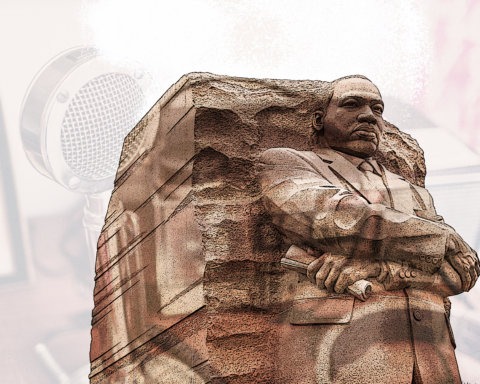

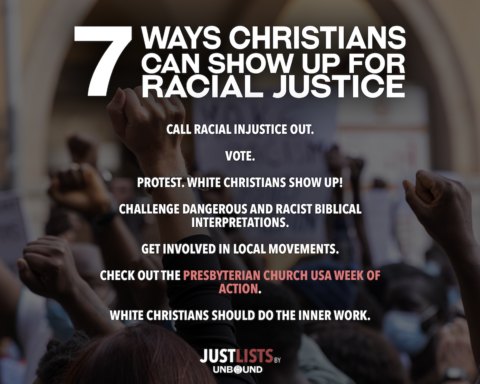
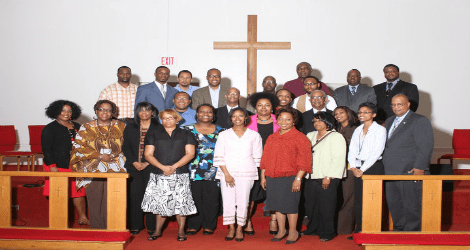
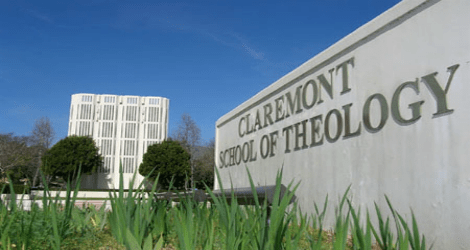
Unbound Social